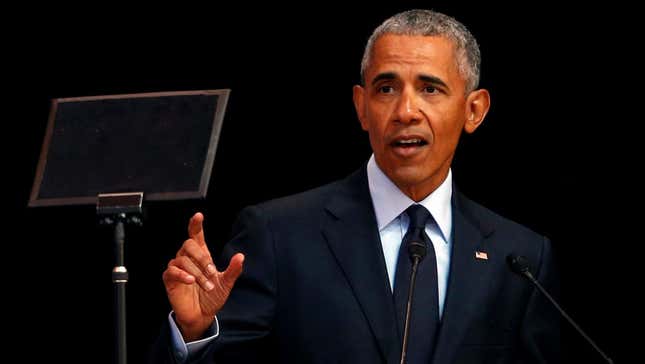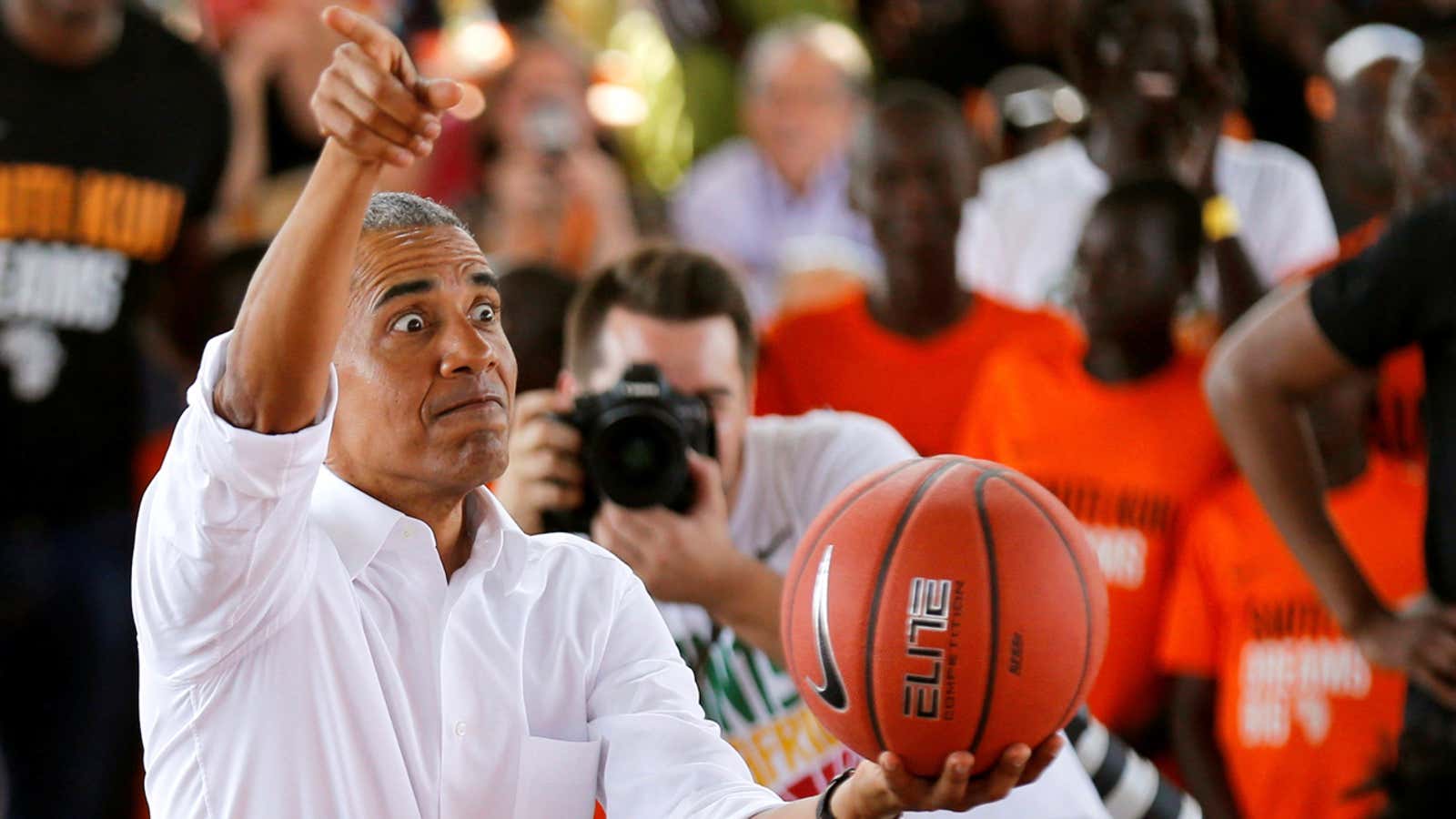At what was perhaps his most important post-White House address yet, former president Barack Obama went off script at the annual Nelson Mandela lecture in Johannesburg on July 17 to deliver clear shots at the current administration.
“Given the strange and uncertain times that we are in, and they are strange, each day’s new news cycles bringing more head-spinning and disturbing headlines, I thought maybe it would be useful for a moment and try to make some sense of it.”
Without ever using his name, Obama then went on to tackle the characteristics of Donald’s Trump presidency that had indeed made these strange times. It was a day after Trump’s press conference with Vladimir Putin in Helsinki that had produced shocking statements and even more confusing rebuttals.

It was a surprise, Obama said, that he even had to lecture about the importance of objective truth, yet, facts were in dispute on matters as important as climate change.
You have to believe in facts. Without facts there’s no basis for cooperation…I can find common ground for those who oppose the Paris Accords. For example they may say, it’s not going to work…or they may say it’s more important to provide cheap energy for the poor even if it means more pollution. At least I can have a debate with them about that and I can show them why I think clean energy is the better path…I can’t find common ground if somebody says climate change is just a hoax, it’s not happening when almost all the world’s scientists say it is. I don’t know how to start talking to you about this. If you start saying its an elaborate hoax, I don’t know what to [trails off]. Where do we start?
And the rejection of data:
You see it in the promotion of anti-intellectualism and the rejection of science from leaders who find thinking critical thinking and analysis and data somehow politically inconvenient.
But, these were times when politicians just “made stuff up.”
We see the utter loss of shame in political leaders where they’re caught in a lie and they just double down and they lie some more. Politicians have always lied but it used to be that if you caught them lying they’d be like, “Oh man.” Now they just keep on lying.
Sometimes it’s just basic stuff, me just not completely lying to people is pretty basic. I don’t think myself a good leader just because I don’t just completely make stuff up. I mean, you’d think that was kind of just the baseline.
There was veiled commentary on the character of current leadership and the political tone in the United States:
Don’t you get a sense sometimes, and again I’m adlibbing here, that these people who are so intent on putting people down and pumping themselves up that they’re small [slight pause] hearted?
And on the danger of concentrating wealth and political power:
“When economic power is concentrated in the hands of the few, history also shows that political power is sure to follow and that dynamic eats away at democracy. Sometimes it may be straight out corruption; sometimes it may not involve the exchange of money, it’s just folks who are that wealthy get what they want.”
There were also clear digs at recent policy choices, specifically the enforcement of immigration rules that ripped families apart.
We can enforce the law while respecting the essential humanity of those who are striving for a better life, for a mother with her child in her arms, we can recognize that could be somebody in our family, that could be my child.
Out of the White House, Obama was unencumbered by diplomatic politeness and took on Russia, China and the world’s strongmen:
On Russia:
Russia, already humiliated by its reduced influence since the collapse of the Soviet Union feeling threatened by democratic movements along its borders, suddenly started reasserting authoritarian control and in some cases meddling with its neighbors.
China:
China, emboldened by its economic success, started bristling against criticism of its human rights record. It framed the promotion of universal values as nothing more than foreign meddling, imperialism under a new name.
Many developing countries now are looking at China’s model of authoritarian control, combined with mercantilist capitalism as preferable to the messiness of democracy. Who needs free speech as long as the economy is on the move?
